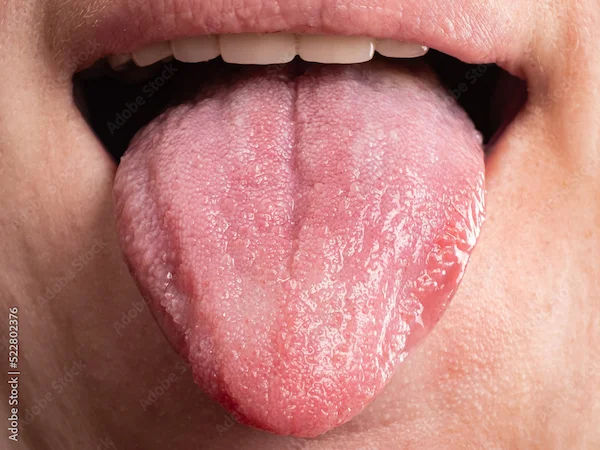Early Symptoms of Tongue Cancer
Discover the early symptoms of tongue cancer, including warning signs, causes, diagnosis, and prevention tips. Learn when to seek medical help for better outcomes.

Written by Dr. J T Hema Pratima
Reviewed by Dr. D Bhanu Prakash MBBS, AFIH, Advanced certificate in critical care medicine, Fellowship in critical care medicine
Last updated on 20th Aug, 2025

Tongue cancer is a type of oral cancer that can develop in the front (oral tongue) or back (base of the tongue) part of the tongue. Detecting it early is crucial for successful treatment and recovery. In this article, we’ll discuss the early warning signs, causes, risk factors, and steps you can take to protect your health.
What Are the Early Symptoms of Tongue Cancer?
Recognizing the early signs of tongue cancer can help in getting timely medical attention. Here are some common symptoms to watch out for:
1. Persistent Mouth Ulcer or Sore: A sore or ulcer on the tongue that doesn’t heal within two weeks.
2. Red or White Patches: Unexplained red (erythroplakia) or white (leukoplakia) patches on the tongue.
3. Pain or Discomfort: Persistent pain in the tongue, especially while chewing or swallowing.
4. Difficulty Moving the Tongue: Trouble moving the tongue or speaking clearly.
5. Numbness: Loss of sensation in part of the tongue.
6. Bleeding: Unexplained bleeding from the tongue without any injury.
7. Lump or Thickening: A noticeable lump or thickening on the tongue.
8. Ear Pain: Unexplained pain in the ear (referred pain from tongue cancer).
If you notice any of these symptoms lasting for more than two weeks, it’s important to consult a doctor.
Consult Top Specialists
What Causes Tongue Cancer?
Tongue cancer occurs when cells in the tongue grow abnormally due to DNA mutations. Several factors increase the risk:
Tobacco Use: Smoking cigarettes, cigars, or using chewing tobacco significantly raises the risk.
Heavy Alcohol Consumption: Frequent and excessive alcohol use is a major risk factor.
Human Papillomavirus (HPV): Certain strains of HPV (especially HPV-16) are linked to tongue cancer.
Poor Oral Hygiene: Long-term gum disease and poor dental care may contribute.
Family History: A genetic predisposition can increase susceptibility.
Diet Low in Fruits & Vegetables: A lack of essential nutrients may weaken the body’s defenses.
How Is Tongue Cancer Diagnosed?
If you experience persistent symptoms, your doctor may recommend:
Physical Examination: Checking for lumps, sores, or discoloration.
Biopsy: Removing a small tissue sample for lab testing.
Imaging Tests: MRI, CT scan, or PET scan to check the extent of cancer.
Early detection improves treatment success, so don’t delay seeking medical advice.
How Can You Reduce Your Risk?
While not all cases can be prevented, these steps can lower your risk:
Quit Tobacco: Avoid smoking and chewing tobacco.
Limit Alcohol: Drink in moderation or avoid alcohol altogether.
Maintain Oral Hygiene: Brush twice daily, floss, and visit your dentist regularly.
Get Vaccinated Against HPV: The HPV vaccine can protect against cancer-causing strains.
Eat a Healthy Diet: Include fruits, vegetables, and antioxidants to support immunity.
Regular Self-Exams: Check your tongue and mouth monthly for unusual changes.
When to See a Doctor?
If you notice any persistent symptoms like sores, pain, or unusual patches on your tongue, schedule an appointment with a specialist. Early diagnosis leads to better outcomes.
Need Help? Consult an Expert Today!
If you're concerned about tongue cancer symptoms, Apollo24|7 offers expert consultations and diagnostic tests. Book an appointment with an ENT specialist or oncologist to get the right care at the right time.
Call 1860-500-1066 to schedule a consultation.
Download the Apollo24|7 App for easy online doctor visits.
Conclusion
Tongue cancer is treatable when caught early. Pay attention to changes in your mouth, follow a healthy lifestyle, and seek medical advice if symptoms persist. Your health matters, stay informed and proactive!
Consult Top Specialists
Consult Top Specialists

Dr. Rupam Manna
Radiation Specialist Oncologist
4 Years • MBBS MD(RADIO THERAPY)
Barasat
Diab-Eat-Ease, Barasat

Dr Gowshikk Rajkumar
Oncologist
10 Years • MBBS, DMRT, DNB in Radiation oncology
Bengaluru
Apollo Clinic, JP nagar, Bengaluru

Dr. Harsh J Shah
Surgical Oncologist
15 Years • MS, MCh (GI), DrNB (GI)
Ahmedabad
Apollo Hospitals Gandhinagar, Ahmedabad

Dr. Vishal Choksi
Head and Neck Surgical Oncologist
20 Years • American Head & Neck Society (AHNS) certified from Memorial Sloan-Kettering Cancer Centre, American Board of Surgery (ABS) certified general surgeon, MBBS (India)
Ahmedabad
Apollo Hospitals Gandhinagar, Ahmedabad

Dr. Amit Choraria
Surgical Oncologist
18 Years • MBBS, MS (Surgery) Fellow, Surgical Oncology, Tata Medical Center (FSO) Fellow, European Board of Surgery (Surgical Oncology) (FEBS) Fellow, Minimal Access Surgery (FMAS) Fellow, Indian Association of Gastrointestinal Endosurgeons (FIAGES) UICC Fellow, Royal Marsden NHS, London, UK Visiting Scholar, Plastic Reconstructive Surgery, CGMH, Taiwan Fellow, Robotic Surgical Oncology, Vattikuti Foundation, USA
Kolkata
Apollo Multispeciality Hospitals , Kolkata, Kolkata

